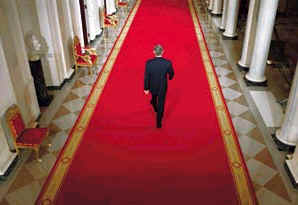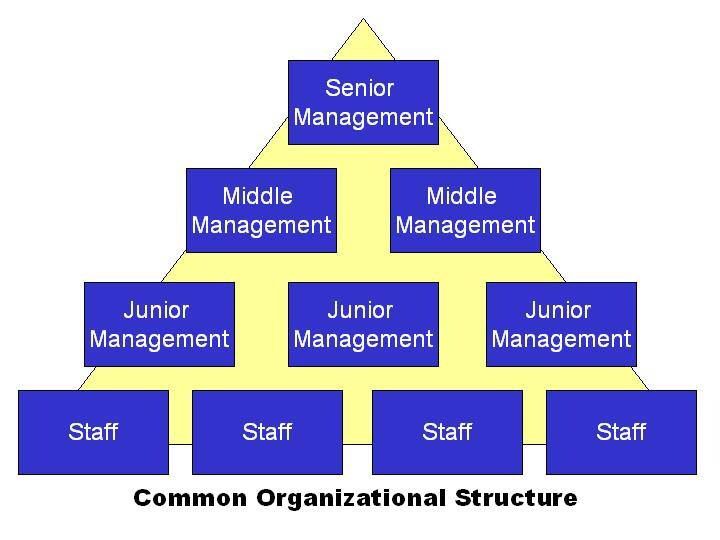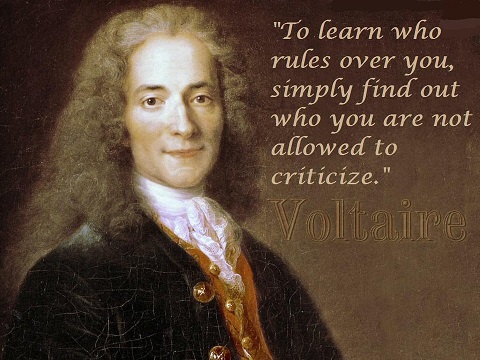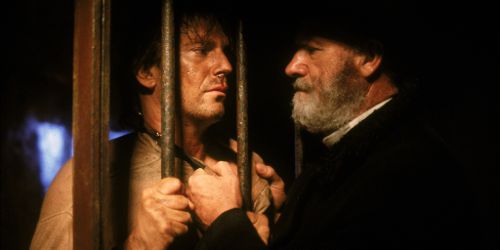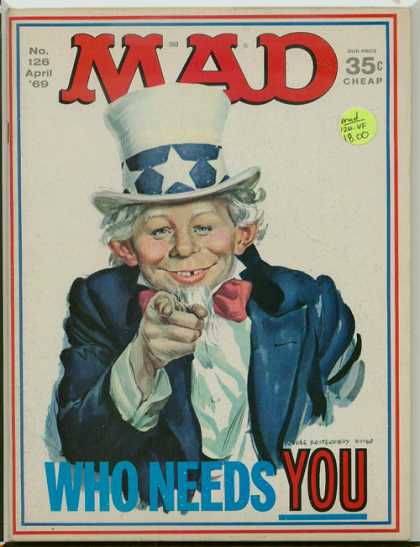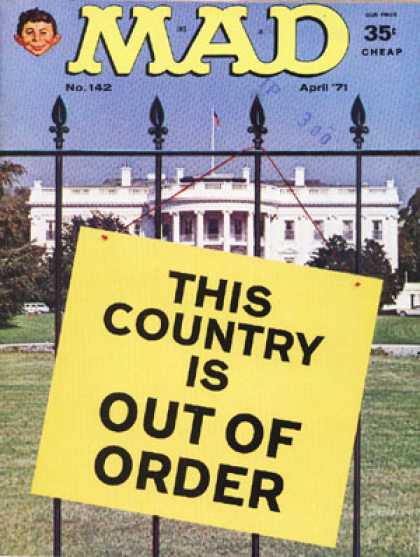|
home | what's new | other sites | contact | about |
||||||
|
Word Gems exploring self-realization, sacred personhood, and full humanity
Government
"No man is good enough to govern another man, without that other's consent. I say this is the leading principle, the sheet anchor of American republicanism." Abraham Lincoln
Mortimer Adler's Syntopicon Essay: Democracy Editor's 1-Minute Essay: Government Editor’s Essay: What does it mean to be a great man or woman?
Judge Stephen Douglas supported the doctrine of "popular sovereignty," the 19th century version of "the right to choose," which allowed new territories to extend or deny the institution of slavery. This precept of self-determinism is "perfectly logical," responded Abraham Lincoln, "if there is no difference between hogs and negroes… [but the question is] whether a negro is not or is a man. If he is not a man … he who is a man may, as a matter of self-government, do just as he pleases with him. But if the negro is a man [shall he not] also govern himself? When the white man governs himself that is self-government; but when he governs himself, and also governs another man [without that other man’s consent], that is more than self-government - that is despotism."
H.L. Mencken: "The Gettysburg speech was at once the shortest and the most famous oration in American history...the highest emotion reduced to a few poetical phrases. Lincoln himself never even remotely approached it. It is genuinely stupendous. But let us not forget that it is poetry, not logic; beauty, not sense. Think of the argument in it. Put it into the cold words of everyday. The doctrine is simply this: that the Union soldiers who died at Gettysburg sacrificed their lives to the cause of self-determination - that government of the people, by the people, for the people, should not perish from the earth. It is difficult to imagine anything more untrue. The Union soldiers in the battle actually fought against self-determination; it was the Confederates who fought for the right of their people to govern themselves."
Niccolo Machiavelli, The Prince (1469-1527): "As a [ruler], it is best to be both feared and loved. But if you have to choose between the two, it is better to be feared than loved... These methods are very cruel, and enemies to all government not merely Christian but human, and any man ought to avoid them and prefer to live a private life rather than to be a king who brings such ruin on men. Notwithstanding, a ruler who does not wish to take that first good way of lawful government, if he wishes to maintain himself, must enter upon this evil one. But men take certain middle ways that are very injurious; indeed, they are unable to be altogether good or altogether bad." Sir Isaiah Berlin, Against the Current: "If human beings were different than they are, perhaps they could create an ideal Christian society. But [Machiavelli] is clear that human beings would in that event have to differ too greatly from men as they have always been; and it is surely idle to build for, or discuss the prospects of, beings who can never be on earth; such talk is beside the point, and only breeds dreams and fatal delusions. What ought to be done must be defined in terms of what is practicable, not imaginary; statescraft is concerned with action within the limits of human possibility, however wide; men can be changed, but not to a fantastic degree. To advocate ideal measures, suitable only for angels, as previous religious writers seem to him too often to have done, is visionary and irresponsible and leads to ruin." Bernard Baruch: This is the test of self-discipline. Even when we know what is right, too often we fail to act ... We blame the nation's troubles on others ... The source of our national trials [is] in our own failure as individuals to discipline ourselves to do what the nation's well-being demands."
Thomas Jefferson: "The natural progress of things is for government to gain ground and for liberty to yield." John Adams: "There never was a democracy yet that did not commit suicide." Charles A. Beard: "One of the best ways to get yourself a reputation as a dangerous citizen these days is to go about repeating the very phrases which our fathers used in the great struggle for Independence." Justice Learned Hand: "[This] much I think I do know - that a society so riven that the spirit of moderation is gone, no court can save; that a society where that spirit flourishes, no court need save; that in a society which evades its responsibility by thrusting upon the courts the nurture of that spirit, that spirit in the end will perish." J. P. Morgan, known to his enemies as Pierpontifex Maximus: "I don't know as I want a lawyer to tell me what I cannot do. I hire him to tell me how to do what I want to do." Marcus Tullius Cicero (106-43 B.C.): “The more laws, the less justice.” Hillary Clinton, First Lady of the US, commenting on the release of subpoenaed documents: “I'm not going to have some reporters pawing through our papers. We are the president!” Thomas Jefferson: "A little rebellion now and then is a good thing." Benjamin Franklin: At the close of the Constitutional Convention in Philadelphia on September 18, 1787, a Mrs. Powel anxiously awaited the results, and, as Benjamin Franklin emerged from the long task now finished, asked him directly: “Well Doctor, what have we got, a republic or a monarchy?” “A republic -- if you can keep it,” responded Franklin. H. L. Mencken: "Government, in its very essence, is opposed to all increase in knowledge. Its tendency is always towards permanence and against change...[T]he progress of humanity, far from being the result of government, has been made entirely without its aid and in the face if its constant and bitter opposition." Will Rogers (1879 - 1935): "This country has come to feel the same when Congress is in session as when the baby gets hold of a hammer." W. R. Inge (1860 - 1954): "A nation is a society united by delusions about its ancestry and by common hatred of its neighbors." President Ronald Reagan, January 26, 1984: "... the story I want to tell, I've been telling it all over the Capital, and I hope it hasn't gotten here yet. [Laughter] It comes from a young first lieutenant, a marine lieutenant who flies a Cobra... And he wrote back and said that while he was in Grenada, he noticed that every news story about Grenada contained one line that never varied, that Grenada produced more nutmeg than any other place on Earth. And he decided that was a code. [Laughter] And he was going to break the code. And so he wrote back to say he did. In six steps he had broken the code. Number one, Grenada does produce more nutmeg than any other place on Earth. Number two, the Soviets and the Cubans are trying to take Grenada. Number three, you can't have Christmas -- or you can't make eggnog -- you can't make eggnog without nutmeg. Number four, you can't have Christmas without eggnog. Number five, the Soviets and the Cubans were trying to steal Christmas. [Laughter] And, he wrote, number six, we stopped them. [Laughter]." Nathaniel Hawthorne, The Scarlet Letter: "The children have come from their schools, and the grown people from their workshops and their fields, on purpose to be happy, for, to-day, a new man is beginning to rule over them; and so--as has been the custom of mankind ever since a nation was first gathered--they make merry and rejoice: as if a good and golden year were at length to pass over the poor old world!" John F. Kennedy: "If we make peaceful revolution impossible, we make violent revolution inevitable." Francis Schaeffer: "If there is no final place for civil disobedience, then the government has been made autonomous, and as such, it has been put in the place of the living God." Orson Scott Card: "If pigs could vote, the man with the slop bucket would be elected swineherd every time, no matter how much slaughtering he did on the side." C.S. Lewis: "The rescue of drowning men is ... a duty worth dying for, but not worth living for. It seems to me that all political duties (among which I include military duties) are of this kind. A man may have to die for our country: but no man must, in any exclusive sense, live for his country. He who surrenders himself without reservation to the temporal claims of a nation, or a party, or a class is rendering to Caesar that which, of all things, most emphatically belongs to God: himself." Theodore Roosevelt: "Patriotism means to stand by the country. It does not mean to stand by the president or any other public official, save exactly to the degree in which he himself stands by the country. It is patriotic to support him insofar as he efficiently serves the country. It is unpatriotic not to oppose him to the exact extent that by inefficiency or otherwise he fails in his duty to stand by the country. In either event, it is unpatriotic not to tell the truth, whether about the president or anyone else." Winston Churchill: "Democracy is the worst form of government except for all those others that have been tried." Thomas Sowell, 11-7-02: "Nothing has so corrupted the institutions of government, and undermined the right of the American people to choose their own laws and policies, as the intervention of judges to over-rule elected officials and impose their own preferences under the dishonest pretense that they are 'interpreting' these laws and following the constitution... We do not need liberal judges or conservative judges. We need judges who follow the laws and the constitution. And we need to get such judges confirmed by the Senate, without ideological litmus tests based on abortion or any other political issue. This is one of those islands that cannot be by-passed if we want to preserve the right of Americans to govern themselves." Professor Daniel N. Robinson, Georgetown University: "Socrates asks the question, How should we be governed? And you cannot answer a question like that in the abstract. You can't answer [this question] unless you've already established what kind of life is the right kind of life for us to live; and you can't answer that question until you've settled the question, What kinds of beings are we? and How is that we can come to know anything? So until you've successfully defeated a skeptical position on all knowledge, you can't have much of a position on ethics; and until you've handled the ethical dimensions of life, you can't have much of a handle on what the political organization of what the polis should be. It's to Socrates' lasting genius that he understands the interconnectedness of these questions -- that the problem of knowledge, the problem of conduct, the problem of governance, are various faces of the same kind of problem, which is, how we come to know ourselves and realize our humanity in the course of a lifetime." Thomas Jefferson: "I place economy among the first and important virtues, and public debt as the greatest of dangers. To preserve our independence, we must not let our rulers load us with perpetual debt. We must make our choice between economy and liberty, or profusion and servitude. If we can prevent the government from wasting the labours of the people under the pretense of caring for them, they will be happy." Thomas Jefferson: "No experiment can be more interesting than that we are now trying, and which we trust will end in establishing the fact, that men can be governed by reason and truth. Our first object should therefore be to leave open to him all the avenues of truth. The most effective hitherto found, is the freedom of the press. It is, therefore, the first shut up by those who fear the investigation of their actions." George Washington: "Government is not reason. It is not eloquence. It is a force, like fire; a dangerous servant and a terrible master." John Adams: "Our constitution was made only for a moral and religious people. It is wholly inadequate to the government of any other." Justice Robert H. Jackson: "It is not the function of our government to keep the citizen from falling into error; it is the function of the citizen to keep the government from falling into error." President Grover Cleveland, 1887: "Though the people support the government, the government should not support the people." H. L. Mencken, The Philosophy of Friedrich Nietzsche, 1950: "Government, in its very essence, is opposed to all increase in knowledge. Its tendency is always toward permanence and against change... [T]he progress of humanity, far from being the result of government, has been made entirely without its aid and in the face of its constant and bitter opposition." John Stuart Mill, On Liberty, 1859: "The object of this Essay is to assert one very simple principle... that the sole end for which mankind are warranted, individually or collectively, in interfering with the liberty of action of any of their number, is self-protection; that the only purpose for which power can be rightly exercised over any member of a civilized community, against his will, is to prevent harm to others." Pierre Proudhon, 1842: "To be governed is to have every opinion, every transaction, every movement noted, registered, counted, rated, stamped, measured, numbered, assessed, licensed, refused, authorized, endorsed, admonished, prevented, reformed, redressed, corrected." George Washington to Henry Laurens, 1778: "It is a maxim founded on the universal experience of mankind that no nation is to be trusted farther than it is bound by its interest." Barry Goldwater: "I have little interest in streamlining government or in making it more efficient, for I mean to reduce its size. I do not undertake to promote welfare, for I propose to extend freedom. My aim is not to pass laws, but to repeal them. It is not to inaugurate new programs, but to cancel old ones that do violence to the Constitution, or that have failed in their purpose, or that impose on the people an unwarranted financial burden. I will not attempt to discover whether legislation is 'needed' before I have first determined whether it is constitutionally permissible. And if I should later be attacked for neglecting my constituents' 'interests,' I shall reply that I was informed their main interest is liberty..." Marcus Tillius Cicero: "A bureaucrat is the most despicable of men, though he is needed as vultures are needed, but one hardly admires vultures whom bureaucrats so strangely resemble. I have yet to meet a bureaucrat who was not petty, dull, almost witless, crafty or stupid, an oppressor or a thief, a holder of little authority in which he delights, as a boy delights in possessing a vicious dog. Who can trust such creatures?" Niccolo Machiavelli, 1513: "There is nothing more difficult to plan, more doubtful of success, nor more dangerous to manage than the creation of a new order of things..... Whenever his enemies have occasion to attack the innovator they do so with the passion of partisans, while the others defend him sluggishly so that the innovator and his party alike are vulnerable... It is just as difficult and dangerous to try to free a people that wants to remain servile as it is to enslave a people that wants to remain free." Abraham Lincoln, Feb. 22, 1861, Address in Independence Hall: "I have never had a feeling politically that did not spring from the sentiments embodied in the Declaration of Independence." Judge John Roberts, Senate confirmation hearings, September, 2005: in response to Dick Durbin: "I had someone ask me in this process, I don't remember who it was, but somebody asked me, you know, 'Are you going to be on the side of the little guy,' and you obviously want to give an immediate answer, but as you reflect on it, if the Constitution says that the little guy should win, the little guy is going to win in court before me. But if the Constitution says that the big guy should win, well, then the big guy is going to win because my obligation is to the Constitution. That's the oath. The oath that a judge takes is not that I'll look out for particular interests; I'll be on the side of particular interests. The oath is to uphold the Constitution and laws of the United States, and that's what I would do." Mark Levin, January 10, 2006: commenting on the Samuel Alito confirmation hearings (paraphrased): "The reason why Alito is just sitting there running rings around the leftist senators is that they're not just matching wits with Samuel Alito -- they're matching wits with Madison, Jefferson and Hamilton." W. B. Yeats: "... the best lack all conviction, while the worst are full of passionate intensity." Dick Morris: “When he was the U.S. ambassador to France, Felix Rohatyn reputedly said that the difference between the French and the American people was that the 'French value ideas over facts while Americans value facts over ideas.' His point was that we want what works while the French have to stop to see if the remedy to the problem fits in with their ideological worldview. But our politicians are increasingly following the French model, attacking one another’s solutions when the people simply want their elected officials to pass everything that will work and get on with it.” Abigail Adams, 1775: "I am more and more convinced that Man is a dangerous creature, and that power whether vested in many or a few is ever grasping, and like the grave cries give, give. The great fish swallow up the small, and he who is most strenuous for the Rights of the people, when vested with power, is as eager after the prerogatives of Government. You tell me of degrees of perfection to which Humane Nature is capable of arriving, and I believe it, but at the same time lament that our admiration should arise from the scarcity of the instances." Lewis F. Powell, Supreme Court Justice: "As to values, I was taught -- and still believe -- that a sense of honor is necessary to personal self-respect; that duty, recognizing an individual's subordination to community welfare, is as important as rights; that loyalty, which is based on the trustworthiness of honorable men, is still a virtue; and that work and self-discipline are as essential to individual happiness as they are to a viable society. Indeed, I still believe in patriotism -- not if it is limited to parades and flag-waving, but because worthy national goals and aspirations can be realized only through love of country and a desire to be a responsible citizen." Theodore Roosevelt, 1917: "The things that will destroy America are prosperity at any price, peace at any price, safety first instead of duty first, and love of soft living and the get-rich-quick theory of life." Irving Berlin: "God bless America ... through the night with a light from above..." John Adams: "Democracy... while it lasts is more bloody than either aristocracy or monarchy. Remember, democracy never lasts long. It soon wastes, exhausts, and murders itself. There is never a democracy that did not commit suicide." Ludwig von Mises: “The worst evils which mankind has ever had to endure were inflicted by bad governments.” Thomas Jefferson, First Inaugural Address: "A wise and frugal government, which shall restrain men from injuring one another, which shall leave them otherwise free to regulate their own pursuits of industry and improvement, and shall not take from the mouth of labor the bread it has earned. This is the sum of good government, and this is necessary to close the circle of our felicity." Alexis de Tocqueville: De Tocquelle understood that democracy is an essentially individualist institution -- and that it stands in unremitting conflict with socialism: "Democracy extends the sphere of individual freedom; socialism restricts it. Democracy attaches all possible value to each man; socialism makes each man a mere agent, a mere number. Democracy and socialism have nothing in common but one word: equality. But, notice the difference. While democracy seeks equality in liberty, socialism seeks equality in restraint and servitude." Winston Churchill: “If a man is not a socialist by the time he is 20, he has no heart; but if he is not a conservative by the time he is 40 has no brain." James Madison: "That alone is a just government which impartially secures to every man whatever is his own." James Madison, Federalist Papers #55: "As there is a degree of depravity in mankind which requires a certain degree of circumspection and distrust, so there are other qualities in human nature which justify a certain portion of esteem and confidence. Republican government presupposes the existence of these qualities in a higher degree than any other form. [Otherwise] the inference would be that there is not sufficient virtue among men for self-government; and that nothing less than the chains of despotism can restrain them from destroying and devouring one another." Mark Twain: "Why Vote? It only encourages them." James Madison, The Federalist Papers #51: "It may be a reflection on human nature, that such devices should be necessary to control the abuses of government. But what is government itself, but the greatest of all reflections on human nature? If men were angels, no government would be necessary. If angels were to govern men, neither external nor internal controls on government would be necessary. In framing a government which is to be administered by men over men, the great difficulty lies in this: you must first enable the government to control the governed; and in the next place oblige it to control itself. A dependence on the people is, no doubt, the primary control on the government; but experience has taught mankind the necessity of auxiliary precautions. Thomas Paine: "Government, even in its best stage, is but a necessary evil." Marcus Tullius Cicero, 106 BC - 43 BC: "A nation can survive its fools, and even the ambitious. But it cannot survive treason from within. An enemy at the gates is less formidable, for he is known and carries his banner openly. But the traitor moves amongst those within the gate freely, his sly whispers rustling through all the alleys, heard in the very halls of government itself. For the traitor appears not a traitor; he speaks in accents familiar to his victims, and he wears their face and their arguments, he appeals to the baseness that lies deep in the hearts of all men. He rots the soul of a nation, he works secretly and unknown in the night to undermine the pillars of the city, he infects the body politic so that it can no longer resist. A murderer is less to fear. The traitor is the plague." Robert F. Kennedy: "The problem of power is how to achieve its responsible use rather than its irresponsible and indulgent use -- of how to get men of power to live for the public rather than off the public." Thomas Jefferson, First Inaugural Address: "Sometimes it is said that man cannot be trusted with the government of himself. Can he, then, be trusted with the government of others? Or have we found angels in the forms of kings to govern him? Let history answer this question."
|
||||||
|
|
